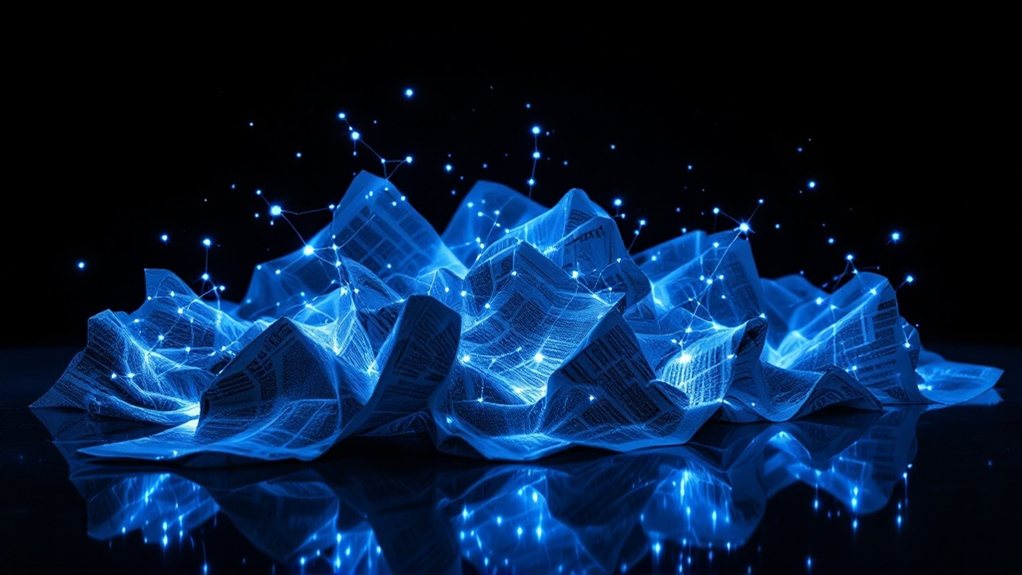AI and human intelligence couldn’t be more different. Humans learn concepts from single examples and excel at emotional intelligence, while AI needs massive datasets to recognize patterns. People dominate creative thinking and social situations, but AI crushes us at processing data and maintaining focus. Humans require breaks and get distracted easily, while AI works tirelessly without complaint. Sure, machines are precise, but they lack that special human spark that makes life interesting.

While humans have spent hundreds of thousands of years evolving their intelligence through trial, error, and countless social interactions, artificial intelligence has burst onto the scene like a caffeinated teenager with a calculator.
And just like that teenager, AI excels at certain things while completely missing the mark on others. It’s a whiz at crunching numbers and spotting patterns in massive datasets, but ask it to understand why your best friend is crying, and it’ll stare at you with all the emotional intelligence of a brick.
The differences become crystal clear when you look at how each learns. Humans can grasp concepts from a single example – show us one cat, and we’ll recognize thousands. AI needs to see countless cat photos before it gets the point.
But flip the script to data processing, and AI leaves us in the dust, plowing through information at speeds that would make a human’s head spin. While AI shows promise in education, personalized learning gains remain limited in practical applications.
Let’s talk about staying power. AI doesn’t need coffee breaks, doesn’t get tired, and never shows up to work hungover. It maintains laser focus on tasks without getting distracted by office gossip or that weird smell coming from the break room.
But humans? We’re masters of context. We can read a room, pick up on subtle social cues, and understand the difference between “fine” and “fine!” Our biopsychological capacity allows us to process and interpret complex social situations naturally.
In creative pursuits and unstructured environments, humans reign supreme. We can write poetry that moves people to tears, create art that challenges perspectives, and navigate complex social situations with finesse. The AI’s struggle with abstract concepts makes it impossible to truly replicate human creativity and humor.
Memory works differently too. AI stores information like a filing cabinet – precise but rigid. Human memory is more like a story that gets slightly embellished each time it’s told, complete with emotions, context, and personal meaning.
It’s messier, but it’s also richer and more adaptable. In the end, AI and human intelligence aren’t competitors – they’re different tools for different jobs.
Frequently Asked Questions
Can AI Develop Emotional Attachments Like Humans Do?
No, AI cannot develop genuine emotional attachments.
While AI can recognize patterns in emotional data and simulate responses, it lacks the capacity for real feelings or emotional experiences.
Think of it as an actor following a script – convincing, but not authentic.
Humans form deep emotional bonds through lived experiences and complex neural processes.
AI just runs sophisticated pattern-matching algorithms.
Big difference.
Will AI Eventually Replace Human Decision-Making Completely?
Complete AI replacement of human decision-making? Not happening.
While AI excels at data processing and repetitive tasks, it lacks essential human elements – emotional intelligence, ethical reasoning, and strategic thinking.
Sure, AI will keep getting smarter, but humans bring irreplaceable qualities to complex decisions.
The future isn’t about replacement; it’s about collaboration.
AI handles the numbers, humans tackle the nuanced stuff. Simple as that.
How Does AI Handle Unexpected or Unprecedented Situations Compared to Humans?
Humans outshine AI when it comes to handling the unexpected. Period.
While AI excels with structured, predictable scenarios, it struggles when faced with novel situations outside its training data.
Humans can think on their feet, using intuition and creativity to navigate unfamiliar territory.
Real-world chaos? Humans adapt. AI? Not so much.
It’s like comparing a jazz musician to a metronome – one improvises, the other just follows the beat.
Can Artificial Intelligence Experience Consciousness Like Human Beings?
Scientists still can’t definitively answer whether AI can experience consciousness. Machines process information and make decisions, sure, but they lack the self-awareness and subjective experiences that define human consciousness.
They’re fundamentally running complex calculations – no feelings, no inner experience, no existential crises about their purpose. While AI can simulate emotions and responses, it’s just following programmed patterns.
Real consciousness remains uniquely human, for now.
Do AI Systems Have the Ability to Forget Information Like Humans?
AI systems can forget information, but not like humans do.
While humans naturally forget through biological processes, AI requires programmed mechanisms like Expire-Span to deliberately remove data. It’s messy business.
AI forgetting is more like forced deletion – expensive and complicated. Humans forget gradually and naturally, keeping important stuff while dropping trivial details.
AI? Not so elegant. It’s all algorithms and computation.









